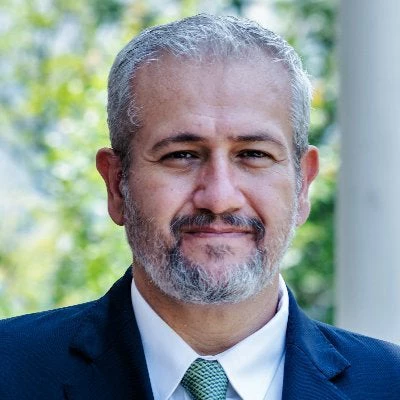 World Bank
World Bank
The Maldives is a small island nation with a vibrant marine ecosystem and an abundance of marine protected areas. Sadly, it also stands out as particularly vulnerable to the impacts of climate change due to its low elevation and reliance on tourism and fishing, which depend on a healthy marine and coastal ecosystem. Coral reefs, wetlands, and mangrove systems are the lifeline of these industries and also protect against coastal erosion and sea-level rise. The Maldives, like many other countries, needs to find that crucial balance between economic development, environmental protection, and addressing climate change. Our recent visit to Gulhi island in Kaafu Atoll showcased all too well how the lack of this balance leads to a dying underwater ecosystem, a receding shoreline and an impacted tourism sector. Early action is needed, and better data is critical to find and maintain that balance.

Gathering data on the ecosystems of the Maldives, a large and dispersed island nation, is a challenge. To effectively monitor and manage these ecosystems, the use of digital technologies such as remote sensing, automated vehicles, and artificial intelligence may be indispensable. It will also be necessary to move from one-time data collection efforts to continuous, locally led programs in order to maximize the value and usefulness of the data.
Remote and automated data collection tools and technologies that can capture data in a less resource-intensive way were identified as a key focus area.
Moving from one-off to continuous and locally led data collection efforts was seen by this group as a key objective, and one that digital technologies and tools can support. Remote and automated data collection tools and technologies that can capture data in a less resource-intensive way were identified as a key focus area. These tools include aerial data capture using drones and specialized cameras and algorithms, such as fluid lensing, which can help map and monitor extended coastal areas and coral reefs as well as underwater acoustic monitoring that allows for remote observation of marine ecosystems based on sounds, with the potential to provide insights on trends in coral reef health, biodiversity, and boat traffic. Participants also explored how to establish ‘smart reefs’ through the application of a variety of tools from fixed sensors to autonomous underwater and surface sensing vehicles to better support reef conservation and management efforts.
Building blocks of a data sharing framework
At the same time, for current and future data collection efforts to be sustainable and to maximize development impact, it is equally important to make it easier for stakeholders to share and re-use climate-relevant data. Workshop participants identified bottlenecks and priority actions to unlock the power of digital data, such as the adoption of clear policies and guidelines to facilitate cross-institutional data sharing, mapping out what data already exists within and across agencies, and strengthening human and institutional capacity for data collection and analysis. Participants also emphasized the value of indigenous knowledge and the need to capture and incorporate observations from fishermen, divers, and members of the local community into the data analytics.
This platform will bring together many sources of climate data and facilitate easier data-sharing and re-use across public, private, and non-governmental entities.
The World Bank-financed Digital Maldives project, part of an innovating engagement with the Government of Maldives, is supporting the country in both expanding its current climate-relevant data collection. This platform will bring together many sources of climate data and facilitate easier data-sharing and re-use across public, private, and non-governmental entities. efforts and in establishing a much-needed climate data platform. For this to happen, we need to put in place the necessary policies, laws and regulations, institutional frameworks, and digital infrastructure. Building a community of data and research collaborations internally and externally and leveraging shared resources will serve as a roadmap for success. This type of project exemplifies the expanding efforts of the World Bank’s Digital Development Global Practice to help countries implement innovative solutions and make the most of existing local and global resources at the intersection of the digital and climate space.
Maldives is a small island state, yet its mark on the global innovation map is vast. Putting such ideas into practice leads to results that can be replicated in other small island states, and even globally, in harnessing digital data and technologies for climate resilience. Working together with a coalition of local and international partners, and through sustained commitment to climate action across government it could lead the way in using the power of digital data to tackle climate risks and to help protect its people and natural assets.



Join the Conversation